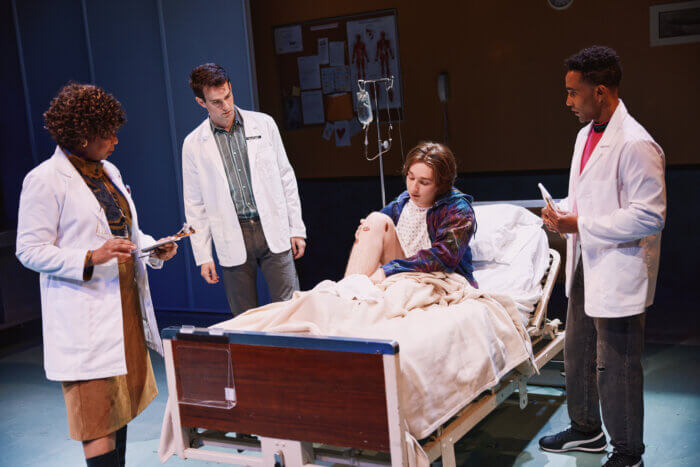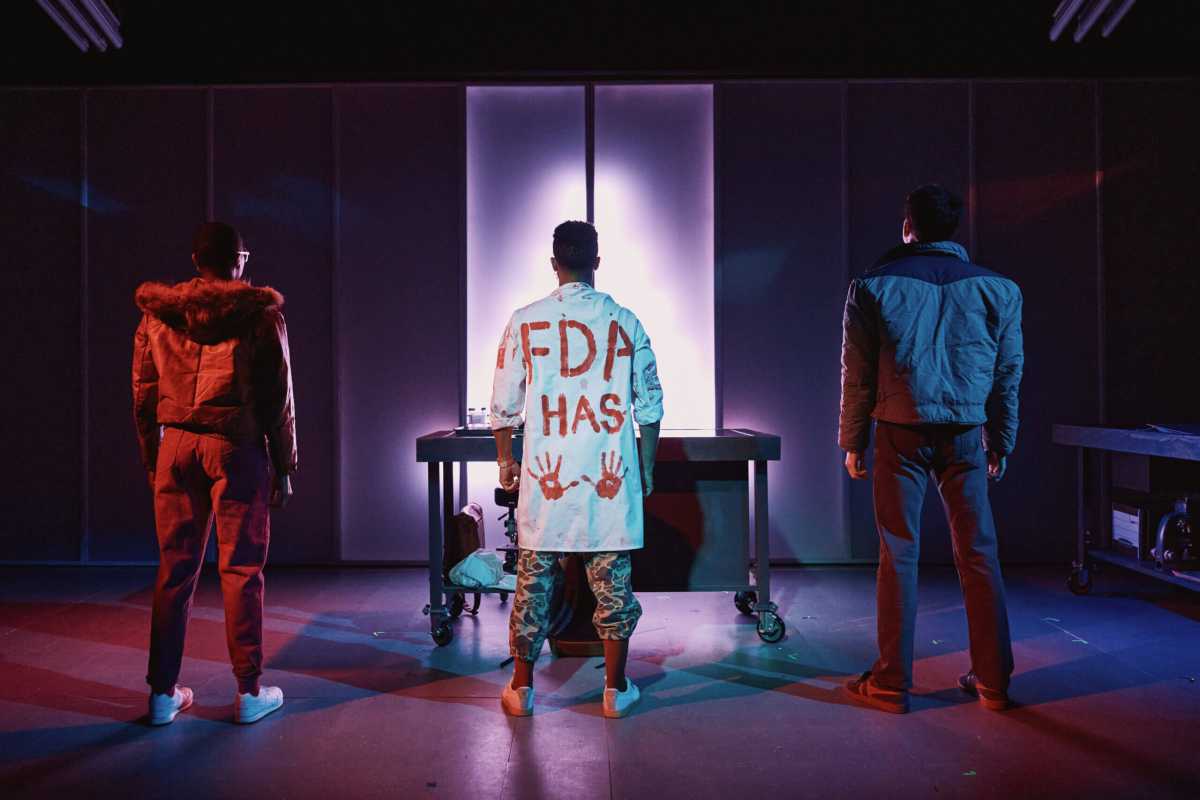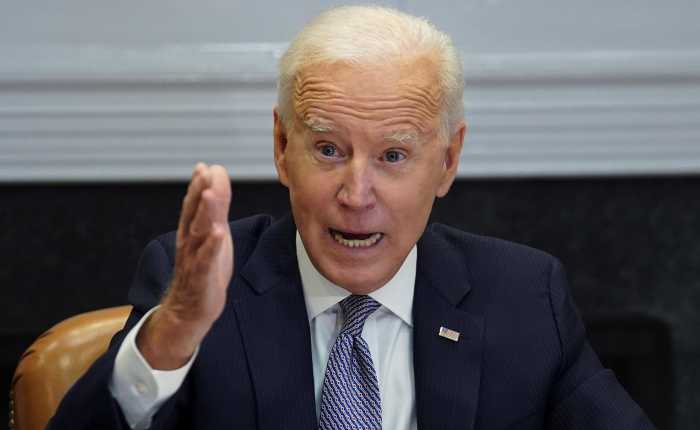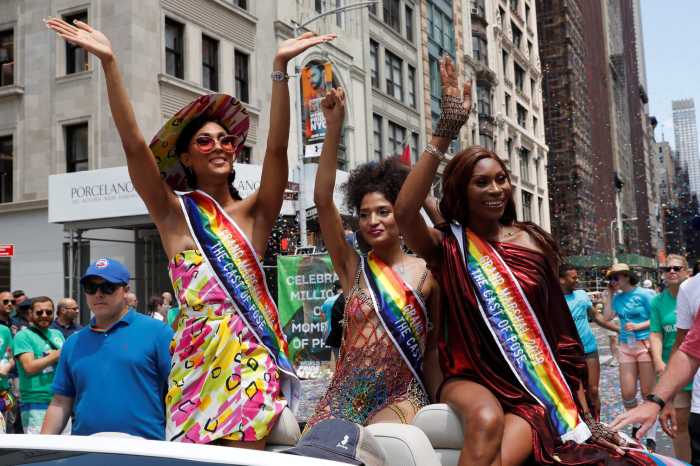In the late 1980s and early 1990s, plays such as “The Normal Heart,” “Jeffrey,” and “Angels in America” helped theatergoers grapple with the HIV/AIDS epidemic raging at that time. The works provided a kind of balm — and a measure of catharsis — during an era when gay men were being struck down at the prime of their lives.
Some 30 years on, new works such as “Love + Science,” now playing at New York City Center, serve as a painful yet vital reminder of how harrowing it was to be a gay man during the crisis. Written by David J. Glass, the drama is a primer of sorts for a generation that wasn’t even born then, unaware of this fateful chapter in LGBTQ history.
As the title suggests, the play chronicles the era through the lens of medical research to fight the disease. Scientists scrambled to discover treatments to ease suffering and prolong life with minimal side effects, but breakthroughs were hard to come by. Finding a cure proved elusive (sadly enough, it still is).
Under the direction of Allen MacLeod, “Love + Science” does its best to balance the human side with the medical side. The year is 1981, and a Gay Related Immune Deficiency, or GRID, is baffling scientists. The plot centers on Matt (Matt Walker, in an exquisitely nuanced performance) and Jeff (the highly appealing Jonathan Burke), first-year students at Columbia Med School who have instant chemistry when they first meet.
The two students help Professor Gold (Thursday Farrar), a renowned virologist, determine how retroviruses can induce leukemia in mice, and later apply this knowledge to humans. Jeff, however, is more interested in luring Matt into a nearby gay porno theater than conducting research. Later, the professor overhears them having sex in a supply room.

With an eye towards historical accuracy, the script is peppered with references to actual gay-centric places popular in the ’80s. Matt visits his former employer, the notorious Steve Rubell (Tally Sessions), at the now-iconic Studio 54. A patient who dies from AIDS complications worked at Stonewall. One bar they frequent is Club 57 in the East Village, which shuttered because much of its clientele had perished. One of the hospitals mentioned is St. Vincent’s in Greenwich Village, which famously had an entire floor devoted to AIDS patients.
Afraid of contracting the virus, Matt puts the brakes on his budding relationship with Jeff, and on hooking up with guys in general. He even tries dating a woman (spoiler alert: it does not go well). Matt’s friend Nicky (Ryan Knowles) is hospitalized with a serious form of pneumonia, and his body is covered with large Karposi’s Sarcoma lesions. He has no clue he has zero chance for survival.
As the decade proceeds, medical advances are made. They determine that AIDS indeed is caused by a virus, can be transmitted through exchange of body fluids, and that safe-sex practices can help in prevention. Steve Rubell dies of AIDS in 1985. ACT UP successfully holds a demonstration to expedite FDA approval of AZT, the first viable treatment, in 1987.
Matt and Jeff are shocked and dismayed that during their medical school commencement, no one mentioned HIV or AIDS. “Nobody cares about dead fags,” Jeff says.
The production values are impressive. The spare and sleek scenic design, by Zoë Hurwitz, evoking research labs, hospital rooms, and Jeff’s bedroom, is lighted to perfection by Samuel J. Biondolillo. The final moments of each scene are punctuated by intense lighting effects that silhouette the characters, amping up the drama.
To the playwright’s credit, the science-laden dialogue feels authentic and never weighs down the narrative. Jeff teaches Matt (and by extension, the audience) how the virus reverse-transcribes its RNA into DNA, and it somehow makes sense. “Yeah, retroviruses are dope,” Jeff says.
Which should come as no surprise, really. Glass drew from his vast firsthand experience as a caregiver for HIV/AIDS patients at New York Medical College, as well as his postdoctoral research on emerging infectious diseases at Columbia University.
Love + Science | New York City Center Stage II | 131 W. 55th St. | $40-$75 | Through July 6 | www.Loveandscienceplay.com | 140 mins., no intermission



































